Guardians of the Galaxy was about as enjoyable as I expected – that is to say highly enjoyable. But story-wise probably a little below the quality level I had hoped for.
There are specific problems and weaknesses with this movie, but for a film that not only needed to initiate the cinematic incarnation of the GOTG mythology but also act as the point-of-entry to Marvel’s Cosmic Universe for the majority of cinema-goers entirely unfamiliar with it, this film had a difficult task from its very inception.
It was bound to fall short on a few levels.
That said, it has hit the mark on the levels that count the most – to be an enjoyable, entertaining film, and to effectively establish point-one in the transplantation of GOTG and its cool-as-fuck characters from comic-book page to cinema screen.
This is probably one of the most enjoyable films I’ve watched in a long time. Guardians of the Galaxy awoke my inner seven-year-old, making me wish I actually was seven years-old; because I know I’d have loved it that much more (and then would want to buy all the toys; especially the Rocket and Nebula action figures).
Comic-book legend Jim Starlin, creator of Drax the Destroyer, Gamora and Thanos, has said it “might be Marvel’s best movie yet”; Starlin might be right.
“Enjoyable” is the key word; it’s clear this film was intended from the outset to emphasise that ‘fun’ vibe above everything else. Someone obviously made a conscious decision to center on the humour and the tongue-in-cheek approach to the movie – that decision has everything to do with what works so well in this film. If you approach a film of this type with anything other than a humorous approach you end up with something very dry and staged and lacking the human element – you end up with Lord of the Rings (In Space) essentially or one of the Thor films.
Not that this focus on humour is without precedent in the source material anyway; the GOTG comics are heavy with humour and sarcasm, so the groundwork was already there at the source. Even so, in the case of this movie, the humour is in fact its defining quality and the thing people are most likely to remember about it.
This film’s vibe is its most winning ingredient – much more so than plot or themes. This is the most FUN movie you’re going to see in a long time.
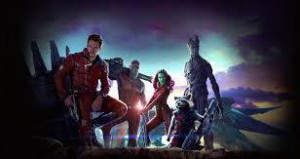
While I think the film may have fallen short in terms of setting out the cosmic arena and its major powers and agendas, James Gunn and Nicole Perlman have done a really great job of introducing and establishing the primary GOTG players in a manner that has them already feeling like well-defined characters. That isn’t necessarily easy to do; we could dredge up dozens of examples of films and franchises that fail to accomplish that basic level of likeability and endearment.
Gunn manages to make more likeable characters of Quill, Rocket, Drax, Groot and Gamora already feel well-developed, emotive characters with an interesting inter-relationship reminiscent of the on-screen dynamics of the original Star Wars trilogy.
The Star Wars comparisons are apt, by the way; in terms of the dynamic. Rocket Raccoon and Groot in particular provide that Artoo-Deetoo/Chewbacca type oddball cuteness to the dynamics, while Starlord/Gamora fall into the mock-antagonistic Han/Leia role.
Those kinds of dynamics are very helpful in a film of this kind where viewers might otherwise find themselves completely lost amid a confusing cosmic backdrop populated by ill-defined villains and agendas.
Most of the things in the trailers that put me off were quickly rectified; which just proves how misleading it can be to pre-judge based on a trailer. I had worried Star Lord was going to end up an arrogant, unlikeable frat-boy type – like Ryan Reynolds in Green Lantern.
But almost immediately as the film was underway it was clear Chris Pratt’s Peter Quill has turned out to be one of the Marvel Cinematic Universe’s best casting choices. The fact is that the Peter Quill of the comics isn’t always a very well defined character and he possesses the capacity to both annoy and endear depending on who’s writing him at any given point. Chris Pratt’s Star Lord is likeable, wholly watchable, and moreover has a degree of pathos and emotional core, particularly because of that opening sequence with his mother.
Pratt’s Starlord feels like a cross between two of the most popular and iconic characters of the genre, Han Solo and James T. Kirk; and he pulls it off really well. Getting Starlord right was always going to be absolutely pivotal for this enterprise to work; and both Chris Pratt and the writers have pulled it off, putting across a lovable rogue.
I also had expected not to like Zoe Saldana’s Gamora either; I’m a fan of Gamora from the comic books, and the version we first saw in the trailers didn’t look or feel right. But over the course of the film she began to grow on me. I still don’t think Saldana’s take really captures the essence of comic-book Gamora as well as possible (she has traditionally been much wittier, much sharper-tongued in the comics; sort of like a cosmic Domino), but it isn’t terribly far off the mark either. And Saldana’s role here was essentially to play the straight-man allowing the others to provide the humour and eccentricity.
Again based on the trailers I didn’t expect to like this version of Drax either; but Dave Bautista’s Destroyer is surprisingly endearing in the end. Again it’s the humour that rescues the character (the recurring gag about him not being able to get metaphors is one of the funniest things in the film), preventing him from being something either silly or annoying. There are obvious differences, both aesthetically and character-wise, between this Drax and the classic comic-book Drax, but I’m not sure the comic-book Drax would’ve worked on film without some surgical re-imagining. What works in comic books isn’t always what works on film.

As for the two characters I was always confident wouldn’t be a problem – Rocket and Groot – both were enjoyable to watch. Groot in particular could’ve been very silly, but actually remains a likeable, plausible presence throughout, despite his limited dialogue. Limited dialogue, in fact, can often help create a better character than those who get the lion’s share of speeches (think Boba Fett, Darth Maul, Blink from X-Men: Days of Future Past, etc).
As for Rocket, who was the character most expected to steal the show, I’m not sure he does steal the show.
As far as the animation goes, it’s terrific stuff; but we’re far down the rabbit hole as far as all that stuff goes by now. I had reservations from the start about Bradley Cooper voicing Rocket and voicing him in a different accent to the original source material. I guess this was done to maximise palatability to the US audience, but I don’t imagine the US audience would’ve had any problems with a non-American accent and don’t imagine they need to be condescended like that; I mean if people are generally happy to accept a talking raccoon then I’m sure the accent is no problem.
However, this isn’t a major criticism, just a minor gripe; Rocket Raccoon, as presented, works fine, particularly in conjunction with Groot. Those two, with their Han/Chewie dynamic, are going to be fun to watch over consecutive films, just as they are in the comics. And actually my complaining about the accent is no reflection on Bradley Cooper’s actual work.
Elsewhere I could take or leave Yondu, Korath and pretty much all the Nova Corps; however, Ronan the Accuser (come to think of it, I don’t think he’s called that in the film; I’m just used to calling him ‘the Accuser’), although not particularly afforded any depth, is menacing enough, and Thanos, though he only appears briefly, is suitably rendered/depicted, enough so to be an intriguing presence (though I’m not sure how well he’ll translate with much more screen time in subsequent films). I have to say that Thanos really did look and feel like the Thanos of the comic books, which afforded me a brief moment of fan-boy pleasure.
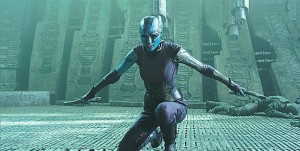
Amid these supporting characters the one that stood out and worked best is Nebula.
It might’ve helped that I’d made it a point to read the lead-in Guardians of the Galaxy Prelude comics, particularly the Nebula-centered one, a few weeks before seeing the film; but actually I think I would’ve had the same opinion anyway. Her fight sequence with Gamora was begging for lightsabers to be digitally animated in, however; and there is an obvious likeness between Nebula as presented on-screen and the Clone Wars villainess Assaj Ventress. I actually happened to be watching an episode of the old Silver Surfer animated series the other night and it featured both Drax and Nebula; I have to say that, purely in visual terms, I prefer the newer interpretation of Nebula to the more classic one.
Ideally I’d like to see Nebula better developed in subsequent films, furnished with greater dimension, particularly in her relationship with Gamora, which at this point is all implication and no depth and, depending on how its written, could end up being something really interesting or something vacuous and silly.
It actually would’ve been awesome if more of the Gamora/Nebula backstory, as focused on in the prelude comic, had been worked into the film.
Meanwhile the motif of Quill’s cassette tape of 80’s hits from his mother imparts to the film both a very different sort of soundtrack (one that you wouldn’t think would work for a film of this type) and an effective emotional undercurrent. It also allows for some of the film’s funniest moments, particularly Quill’s early dance sequence in the Indiana Jones opening and the end-credits moment of the Groot sapling dancing to the Jackson Five.
This is all stuff that on paper I wouldn’t think would work; but what works in a film is all about how the concepts are executed on screen and not about how they read on paper, look in storyboards or sound in pitches.
The same could be said in regard to the GOTG movie as a whole. It just works. It probably shouldn’t; but it does.
But, again, this film does have weaknesses – at least in my opinion.
As far as the film’s weaknesses go, the biggest is again that I think there’s an issue when it comes to fleshing out the broader cosmic arena. The impression is that the filmmakers chose to simply present the galactic environments and settings as if everyone would be alright with it and not need an explanation; this was no doubt to avoid getting bogged down in Lord of the Rings style exposition that would’ve slowed the film down too much. That’s fine, but I wonder if non-comic reading cinema-goers would’ve had a lot of information go over their heads. The friend I watched it with in the cinema had a whole bunch of questions for me afterward, some of which I’m not sure I answered adequately.
The Kree, for example, are never really explained or explored as anything beyond villains for screenplay-convenience.
The problem is, however, that Marvel’s cosmic arena is a complex, highly populated mosaic of decades’ worth of material, very difficult to set up adequately in one film, particularly when the vast majority of your viewing public has never read a Guardians of the Galaxy comic before and has no idea who the Kree are or what Thanos is about.
That was always going to be a difficulty for this film and it doesn’t quite manage to overcome it.
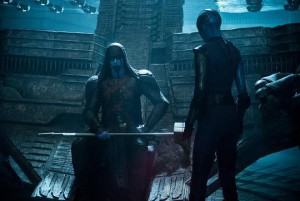
Some of the settings in this story aren’t very well brought to life. Xandar in particular, so central to the plot, is a bit of a dead, colourless planet before Ronan ever even gets to it; a world and a society that doesn’t seem to mean or stand for anything, at least not as far we’re told. Which makes it difficult to empathise with their plight or to care what happens to them; we care about Starlord, Drax and the Guardians and what happens to them because we’ve seen and understood their personal journeys and issues, but Xandar and the Nova Corps are left as non-entities just like the Kree. Xandar is presented as a seriously dull society – more than anything like a vast bureaucratic, existentialist nightmare and the kind of society you wouldn’t want to live in unless you’re an accountant or work in real estate.
But I acknowledge that the primary goal of a film like this is to win over the general cinema-going public and score enough of a crossover commercial success so as to ensure studio support for future films.
In that much, Guardians of the Galaxy clearly does the job. And having established its cinematic presence successfully, perhaps future films will be afforded the scope to explore and expand the cosmic arena more meaningfully. In truth, I never expected to see everything from the Skrulls and Galactus to Moondragon, Starfox or the Supreme Intelligence thrown in or referenced in this movie anyway (partly because half those things are currently owned by FOX due to FOX owning the Fantastic Four property).
It is also an issue, as said before, of what works in a comic-book setting over a number of years not being necessarily what will work in a two-hour film; ideas that flourish in comic-book form can end up looking silly and unpalatable in film form. Guardians of the Galaxy mostly manages to avoid that problem, but it tends to do so by limiting the potential areas of liability rather than dealing with them.
There is a problem with the Marvel Studios films in general that beyond the primary characters the respective filmmakers seem to struggle to make the supporting characters engaging; the only exception I can think of is Hugo Weaving’s Red Skull in the first Captain America, who, though not particularly well written, was enjoyable to watch. This GOTG movie struggles with that a little too, though perhaps not as badly as the other examples I’ve mentioned.
The problem is you have characters like Ronan, Thanos or Loki, who have rich comic-book histories, but when you transplant them to cinema with its different rules and necessary parameters they’re not as interesting; instead they come off about the same as your average Star Trek film villains (think Ruafo in Star Trek: Insurrection, for example, or Tom Hardy’s Shinzon in Nemesis).
I would also say that the ending is a bit of an anti-climax. Not the actual ending as in the final scene – that was perfectly measured for tone (“Bit of both!”) – but I mean the somewhat silly-looking showdown with Ronan; doesn’t quite live up to the two hours of stage-setting.
All in all, as this review demonstrates, Guardians of the Galaxy is a bit of a mixed bag; but for all of that, my overriding sense of the film is how much I enjoyed it; and that surely is the cardinal point in the end.
For a film that had the job of initiating a new franchise and setting the stage for the cinematic exploration of Marvel’s cosmic arena, Guardians of the Galaxy does the job and it does it with a great sense of style, a refreshing sense of humour and a spring in its step.
It’s biggest strength by far is its five main characters and that in essence is the most important thing to have gotten right. Drax, Starlord and Rocket are a joy; while Gamora and Groot are an effective presence, and Nebula promises better intrigue to come. It delivers a thoroughly enjoyable film along the way; while it isn’t thought-provoking or life-changing, it is pure escapist SF fantasy and popcorn entertainment at its best.
And I really want a Starlord mask now; not since Mace Windu’s purple lightsaber have I coveted a film prop so much.
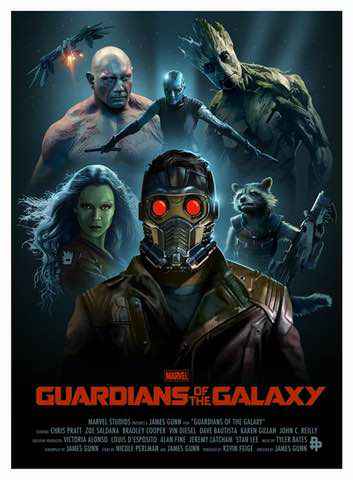
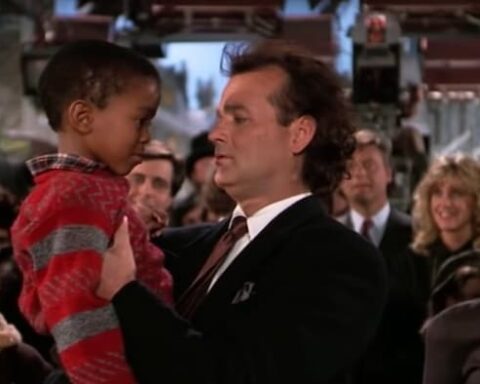
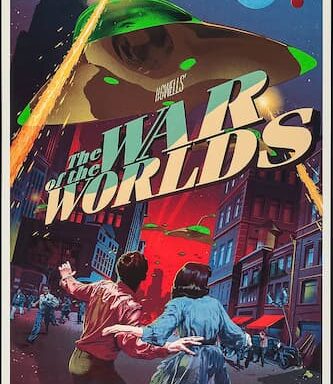
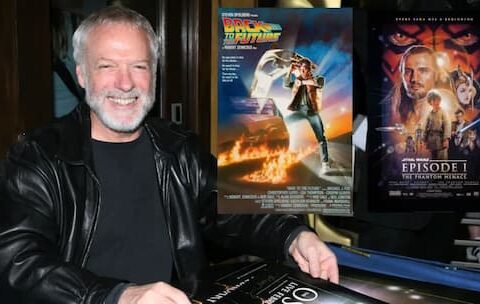
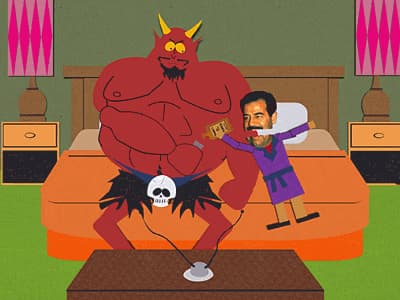
“Gunn manages to make more likeable characters of Quill, Rocket, Drax, Groot and Gamora – and to establish a more enjoyable inter-character dynamic – in one movie than four lead-in films managed to accomplish for Avengers Assemble. Whereas the Avengers film versions of Captain America, Hulk, Black Widow, Hawkeye and Thor (I’m exempting Iron Man from this list) felt like dry archetypes, the five central characters of GOTG already feel well-developed, emotive characters with an interesting inter-relationship reminiscent of the on-screen dynamics of the original Star Wars trilogy.”
Very much agree! I was personally really surprised by how much they were able to develop the inter-character dynamic, especially, like you said, in a big-budget Hollywood action movie. That like, practically NEVER happens, so it was unexpected, but cool. (saw it in 3-D with my daughter..) I was also pretty amazed by just the visual aspect of it all, the cgi detail on Rocket, (so real looking!) and how it was all very colorful and “comic-booky”, but yet still didn’t feel hokey somehow. Overall, this movie was not an easy one to pull off, and they really outdid the other Marvel film adapts by a large margin. I realize they probably did cut out a LOT of backstory and historical development of the broader “GOTG cosmos”, but as a Dad, I can now sort of appreciate why they feel the need to do that, being that the younger peeps have such a short attention span, and in some ways they are running the risk of boring the audience to death by way of following Lucas’s example of making a big-budget film where they sit around and talk about trade embargos and galactic Senate hearings… 🙂
I really loved this film, I think they got the tone and dynamic just right. As for trade embargos and senate hearings, I’m perfectly happy with that! I’m the only person on earth you’ll find defending The Phantom Menaec and Uncle George to this day!
Blasphemy!!!